Submitted by WA Contents
Zaha Hadid Architects completes sinuous culture and arts centre derived from pedestrian routes
China Architecture News - Dec 05, 2019 - 15:46 26519 views
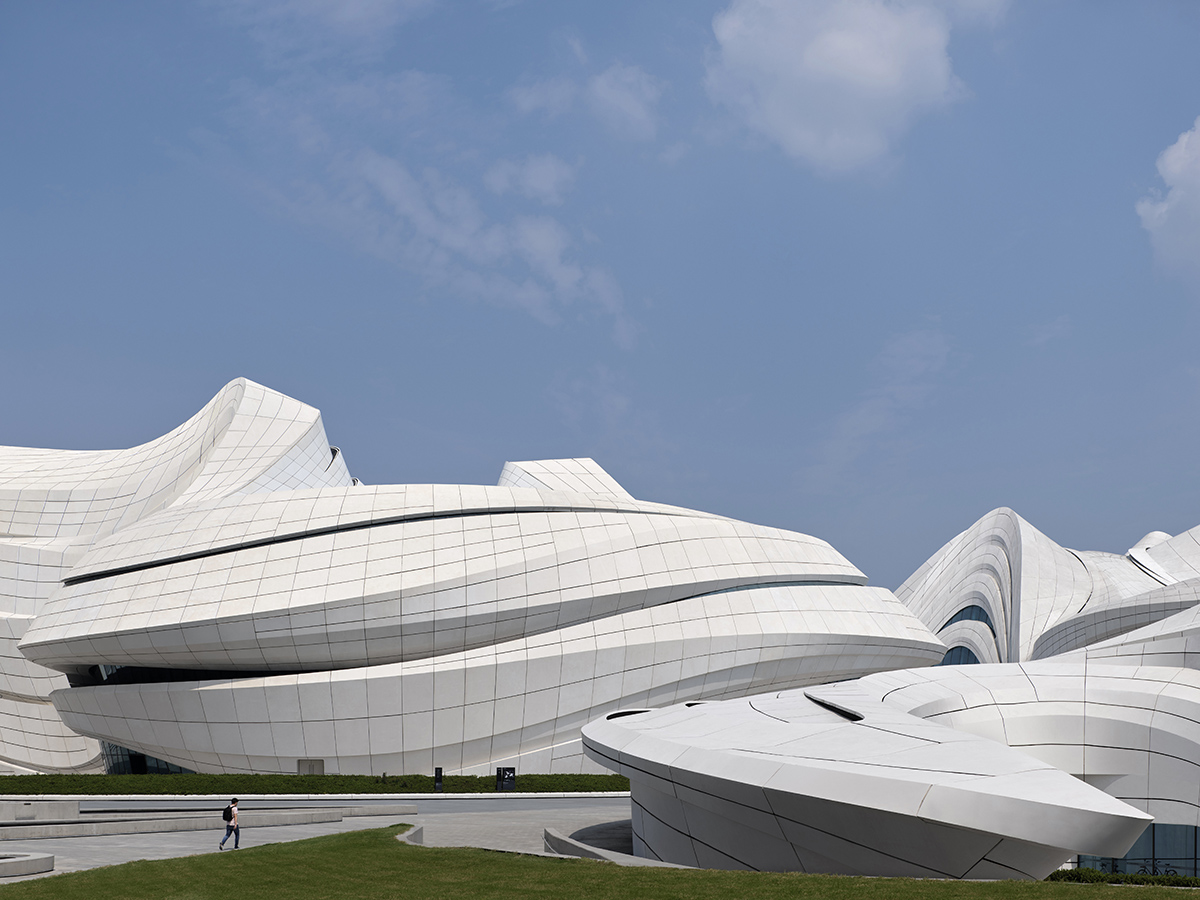
Zaha Hadid Architects has completed a new culture and arts centre in Changsha, China, the complex follows a fluid and sinuous form that is derived from pedestrian routes.
Named Changsha Meixihu International Culture & Arts Centre or MICA, the 115,000-square-metre mega complex has been opened with its first exhibition, entitled "Flowing Eternity".
The immersive exhibition by MOTSE, a group of 40 artists and scientists based in Shenzhen whose collaborative, features interactive works using innovative technologies in new media to explore contemporary culture.
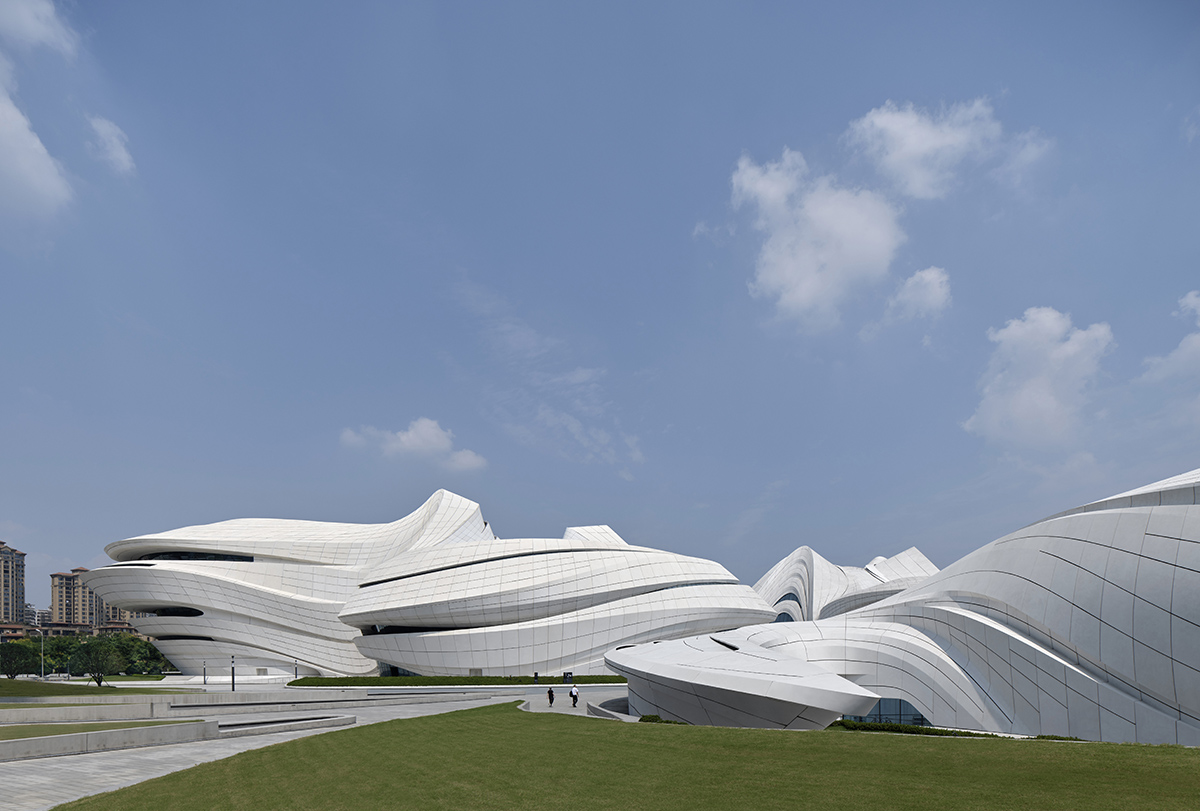
Zaha Hadid Architects' new culture and arts centre incorporates a contemporary art museum (MICA), an 1,800-seat theatre with supporting facilities and a multipurpose hall.
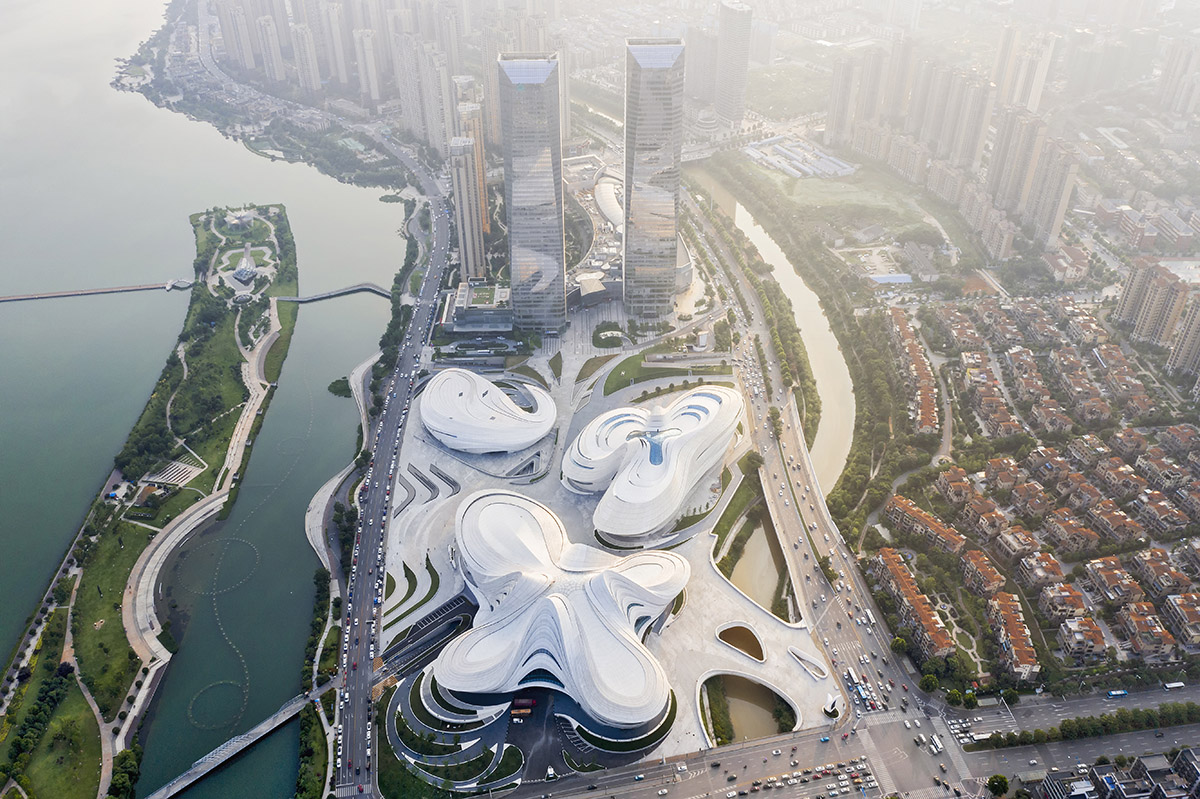
Image © IG: seven7panda
"Its organic architectural language is defined by pedestrian routes that weave through the site to connect with neighbouring streets," said Zaha Hadid Architects in its project description.
"Providing views of the adjacent Meixi Lake from the city and giving access to the parks and walking trails on the lake’s Festival Island, this ensemble of three separate cultural institutions creates external courtyards where pedestrian routes intersect for outdoor events and sculpture exhibitions."
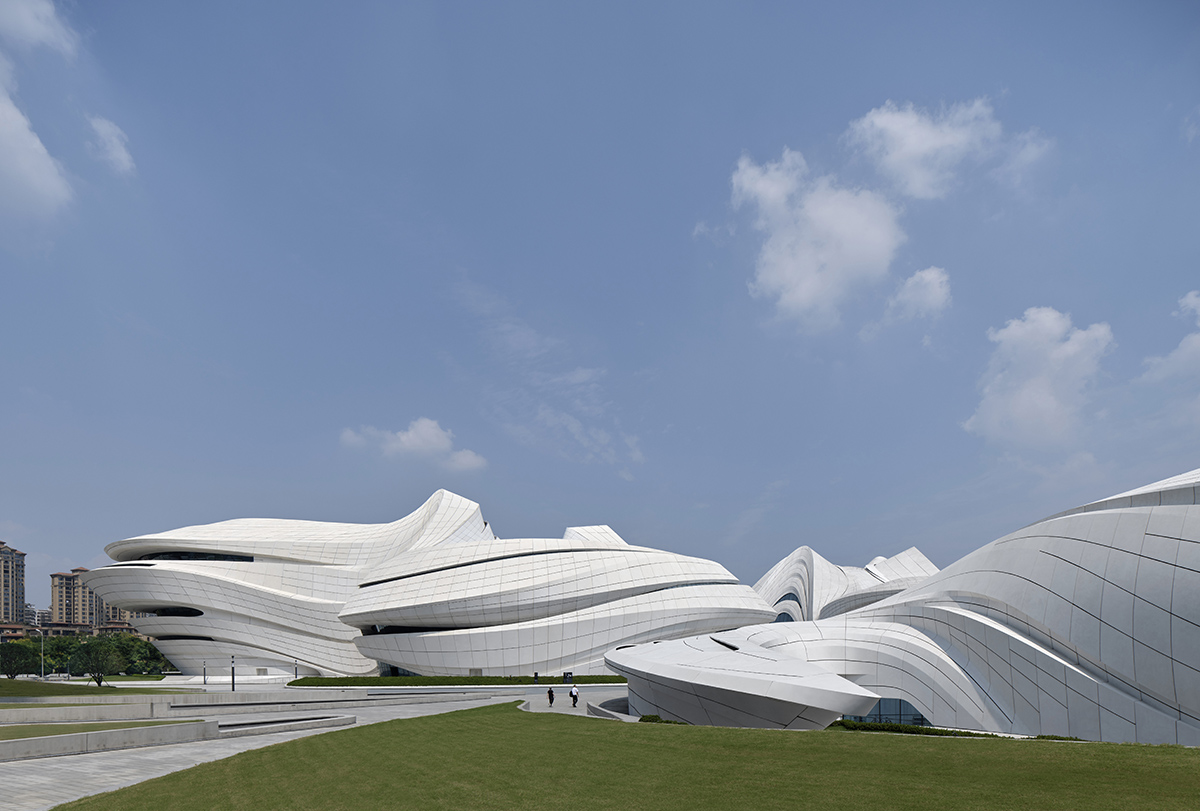
The largest and most versatile cultural centre in Hunan province, the Culture & Arts Centre connects directly with its station on Line 2 of Changsha’s new Metro System.

Located on historic trade routes through China, the city of Changsha’s traditions as an important centre of communications continues as one of the country’s leading media hubs with the centre’s Grand Theatre hosting a popular programme of performances and television productions.
Designed for the widest variety of performing arts, the Grand Theatre provides all front-of-house functions in sculpted lobbies, bars and hospitality suites, as well as the necessary ancillary functions including administration offices, rehearsal studios, backstage logistics, wardrobe and dressing rooms.
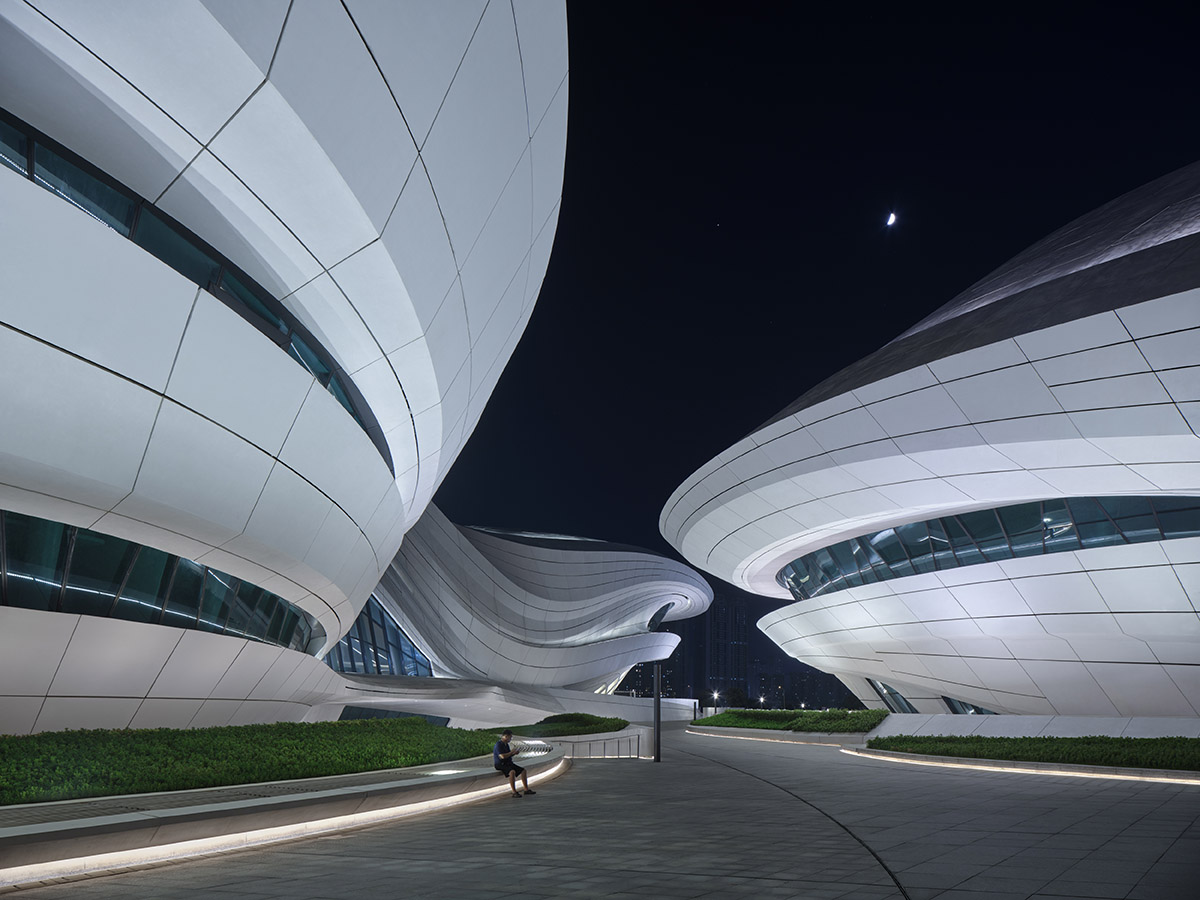
With eight juxtaposed exhibition galleries totalling 10,000 square meters centred around an atrium for large-scale installations and events, the MICA art museum also includes dedicated spaces for community workshops, a lecture theatre, café and museum shop.
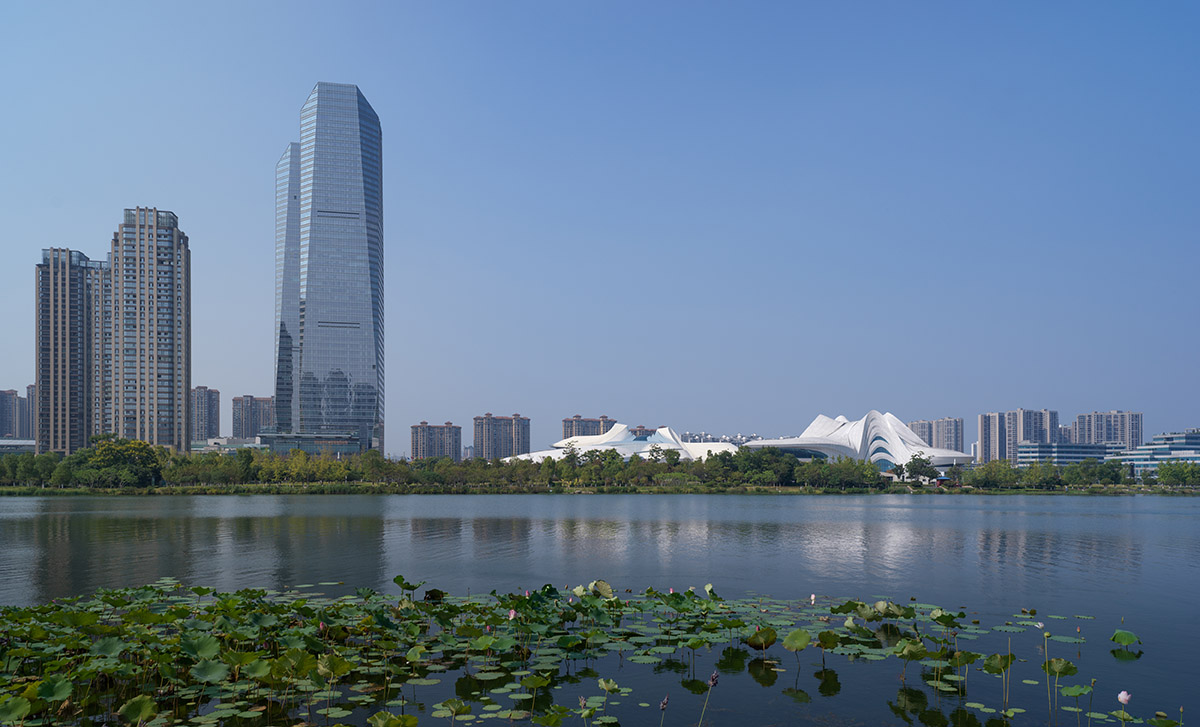
The Small Theatre is characterized by its flexibility. This multipurpose hall with a capacity of 500 seats can be transformed to different configurations to accommodate a broad range of functions and performances that span from small plays, fashion shows and music performances to banquets and commercial events.

Totalling 115,000 square meters, these three civic institutions are uniquely defined and separate, yet complement each other with different opening times creating vitality throughout the day and evening. The theatre becomes active as the art museum begins to conclude its day-time operations, whilst the variety of events in the smaller theatre ensure it will be used at all times.
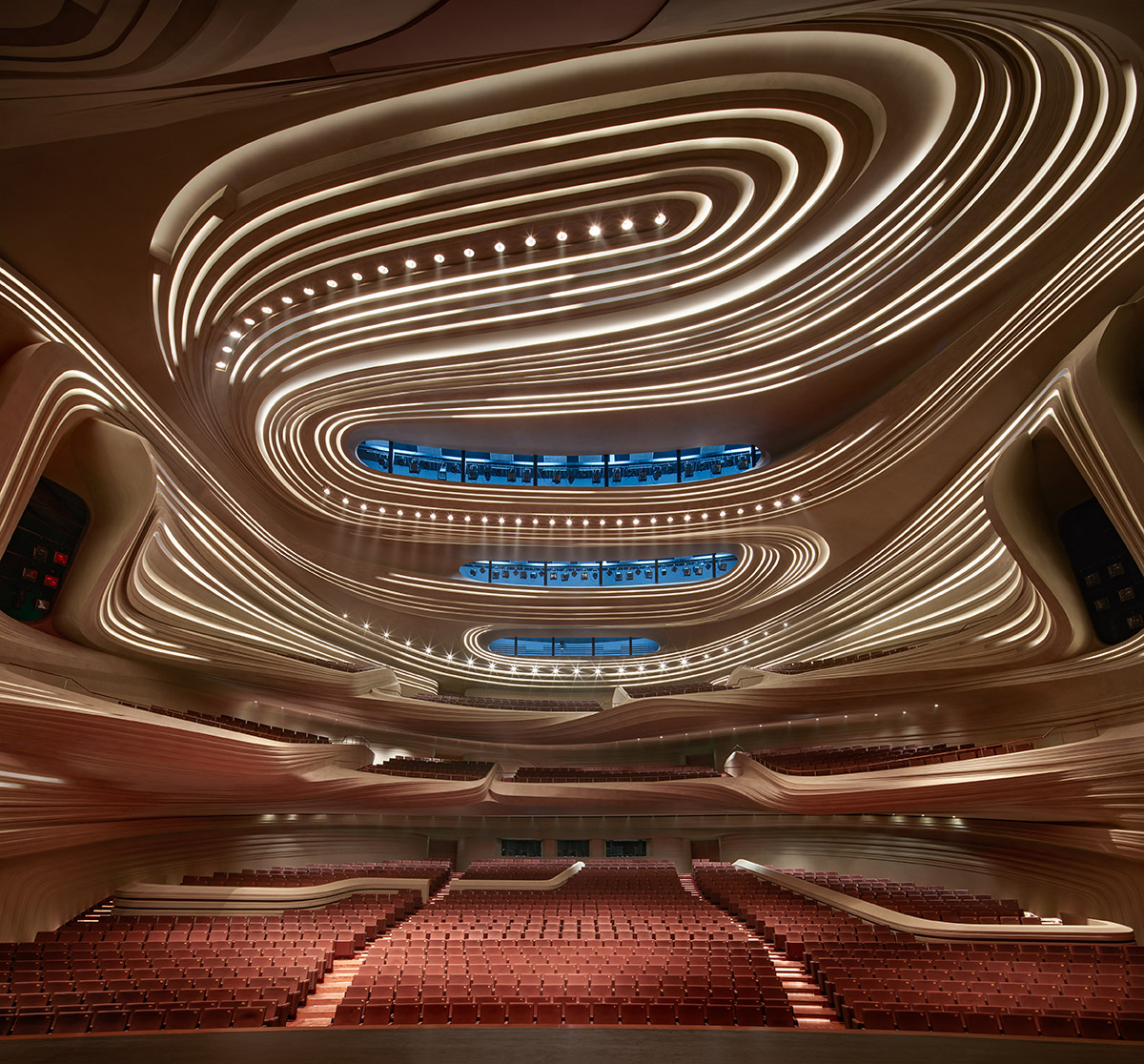
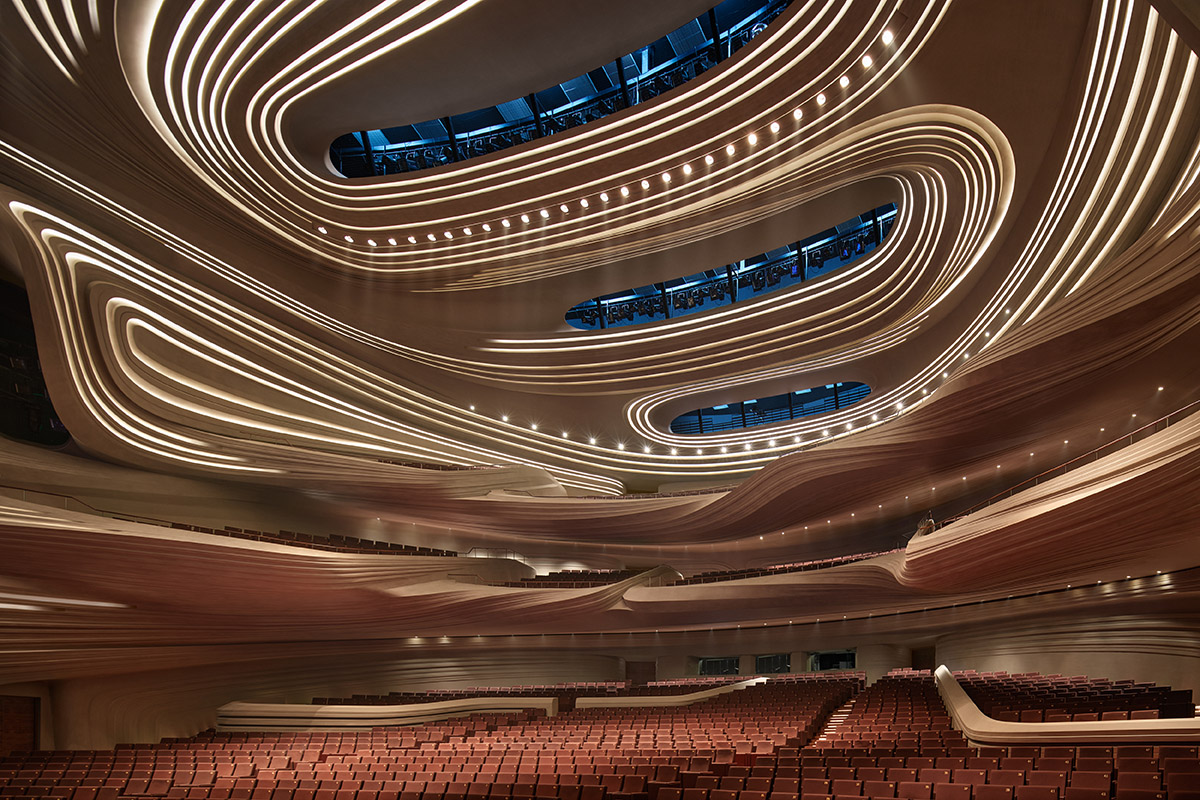
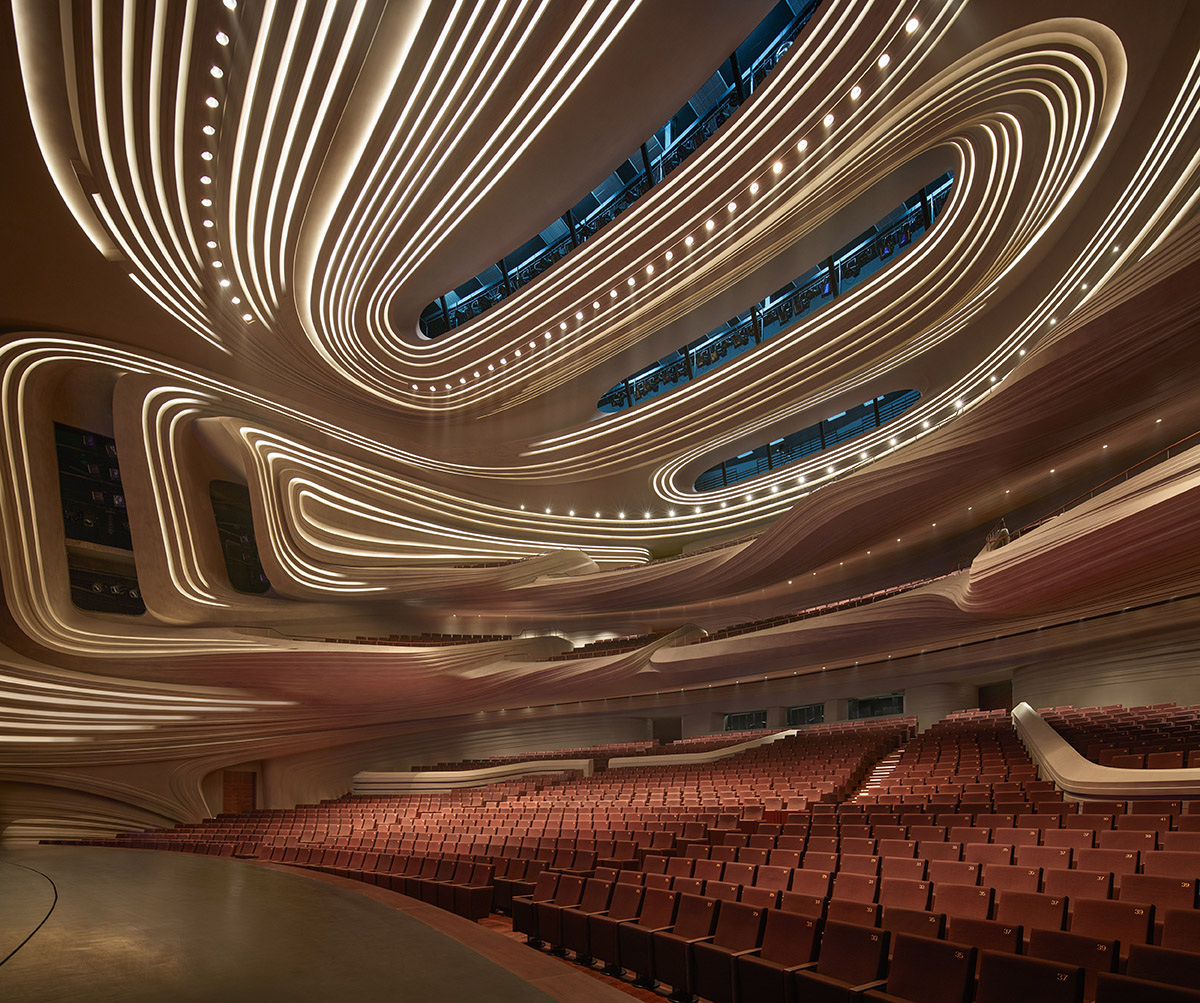
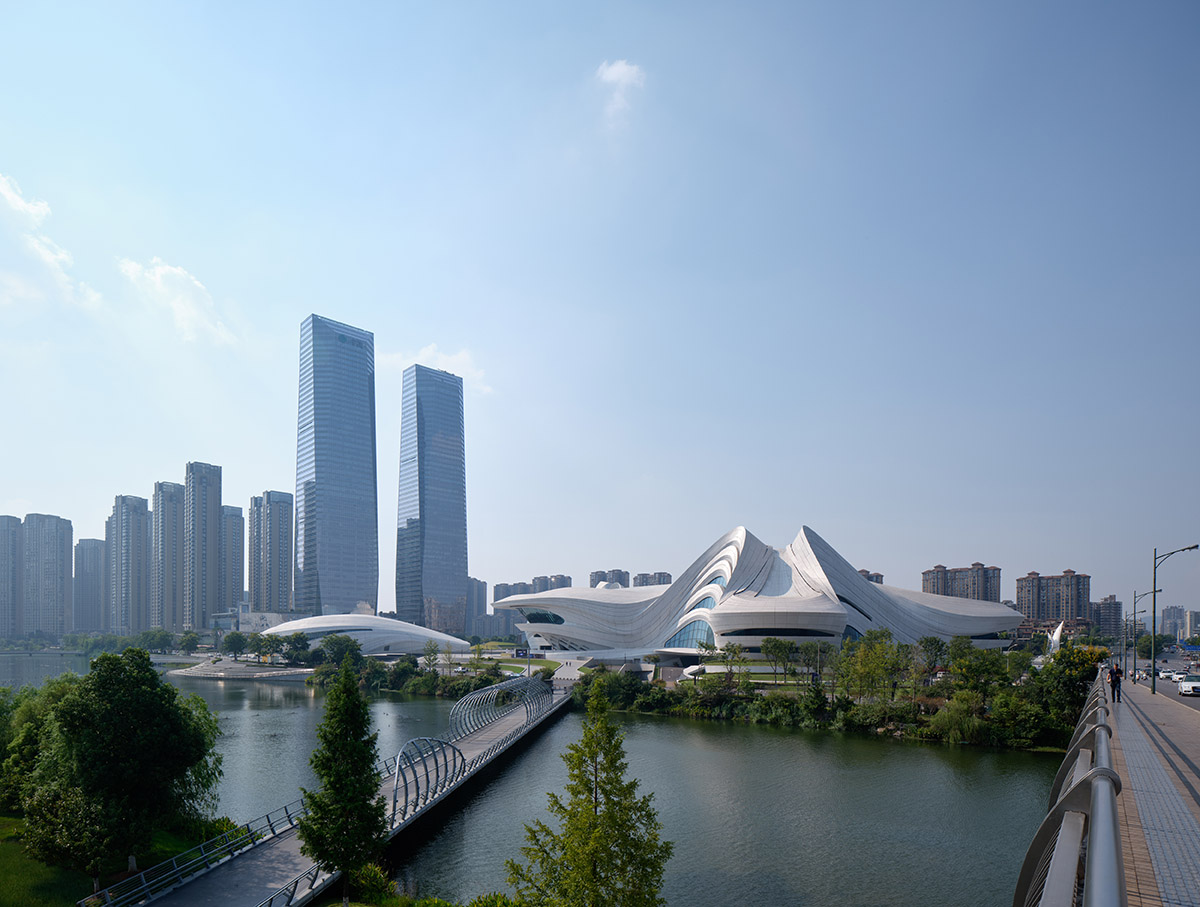
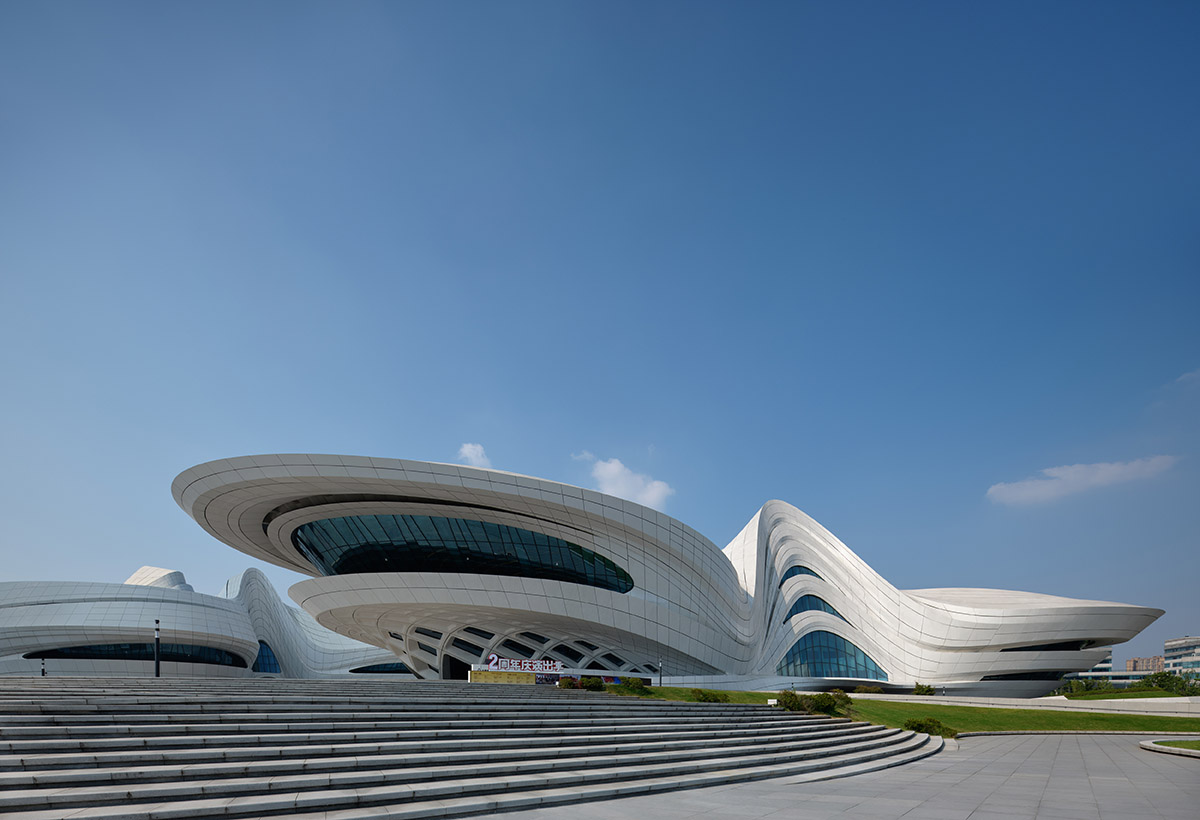
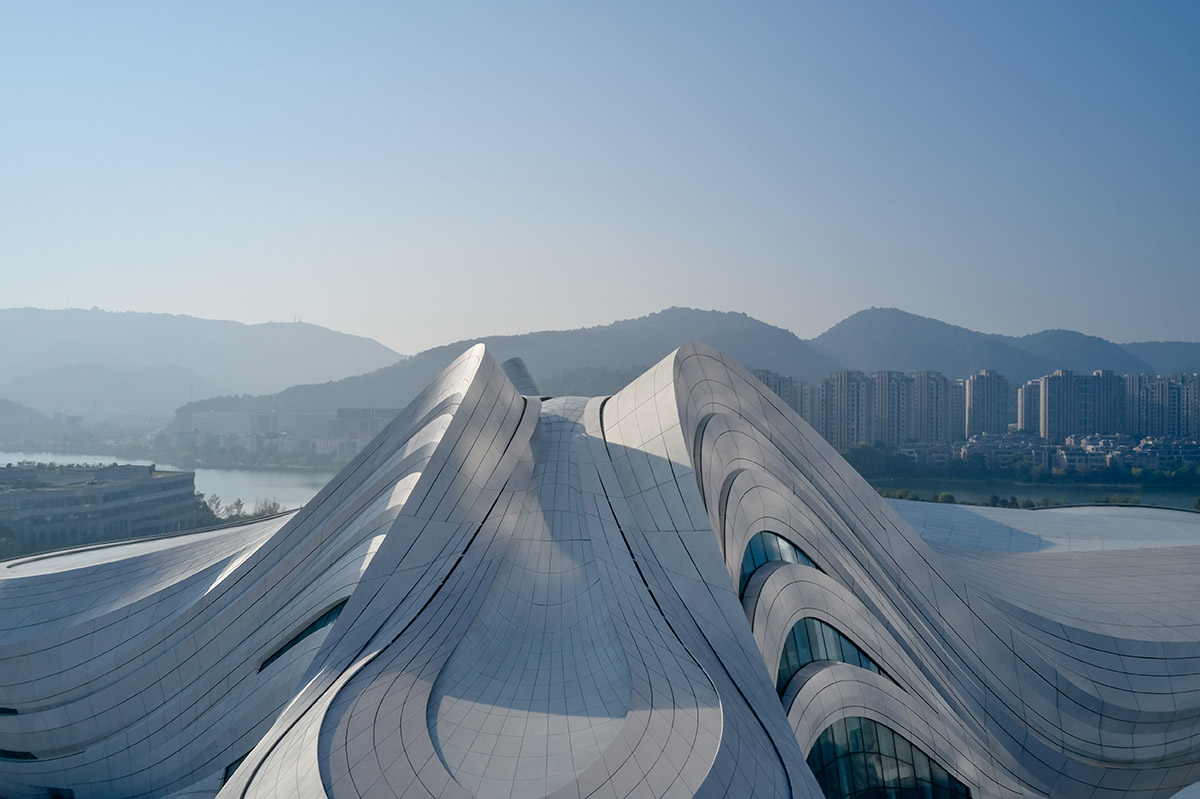



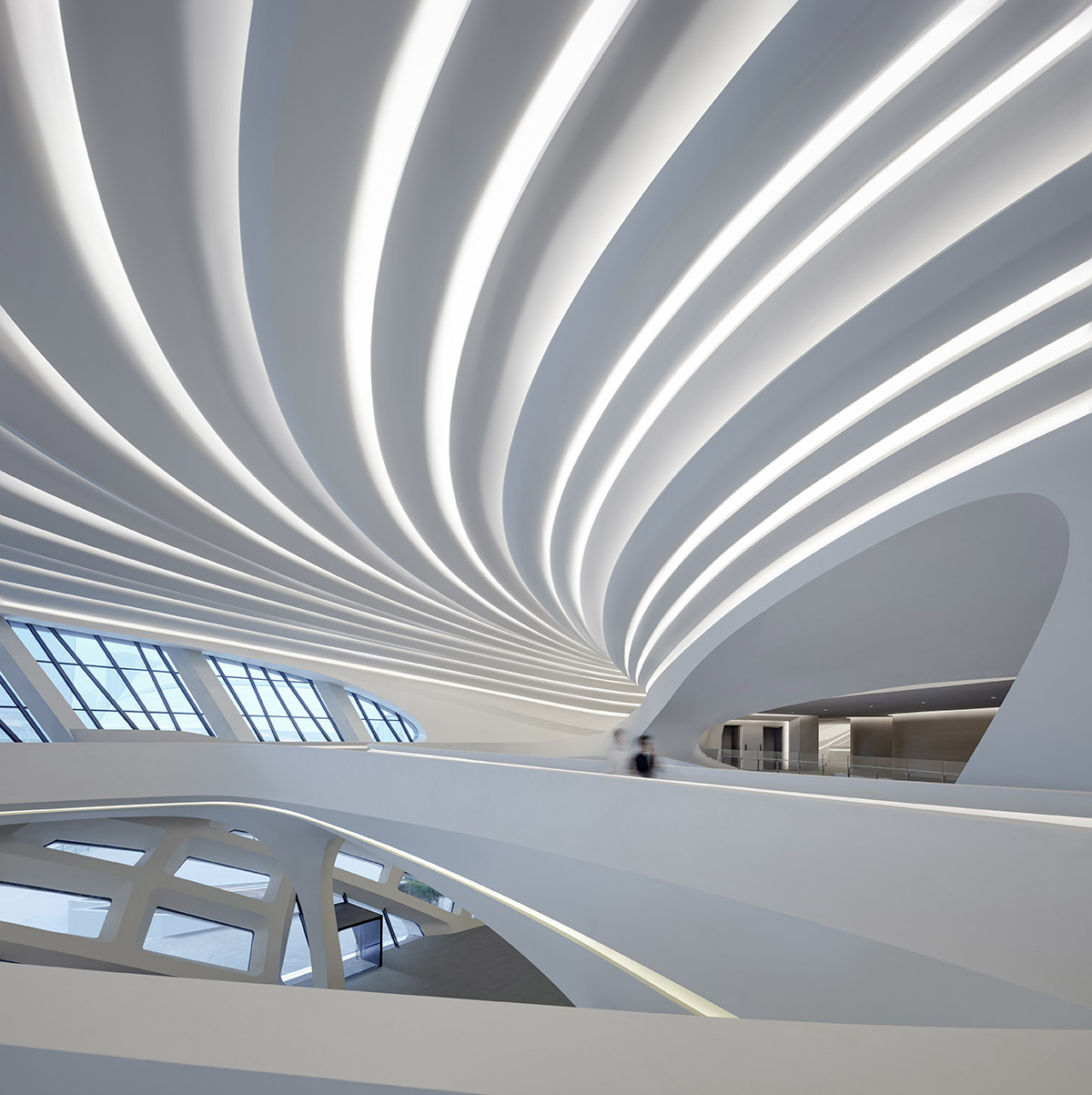
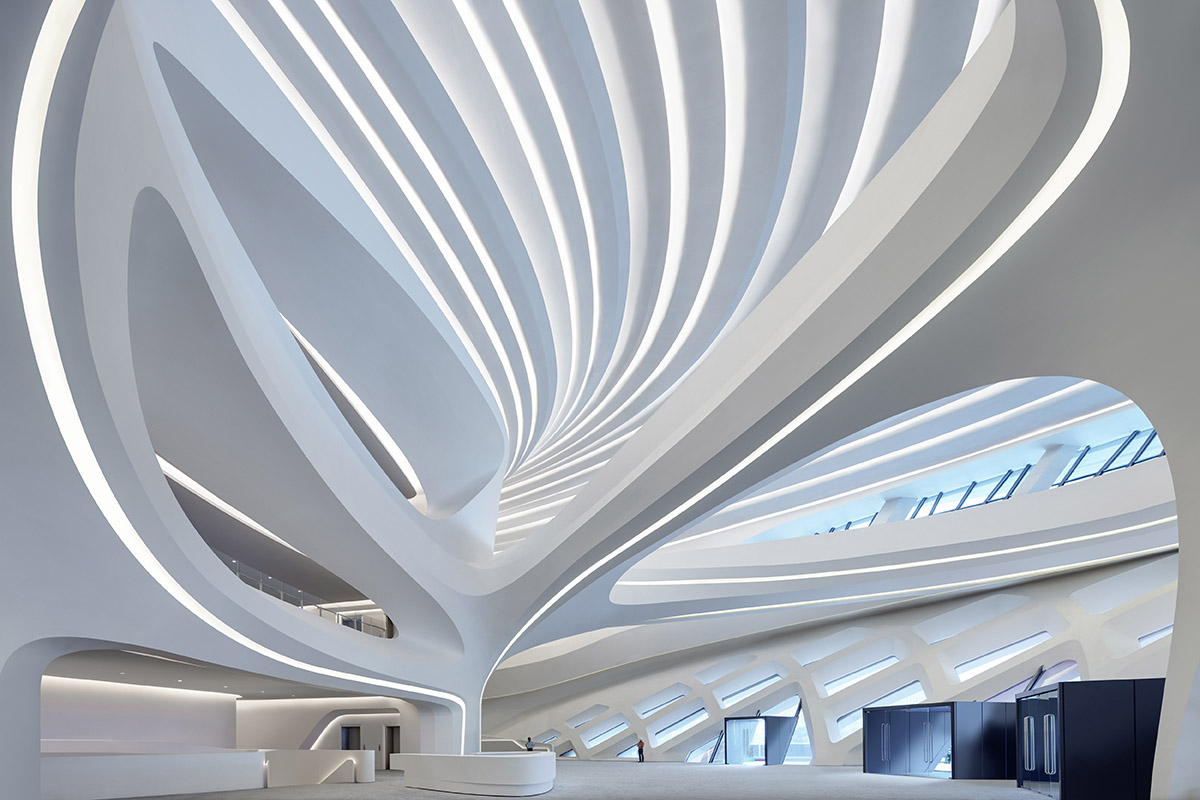
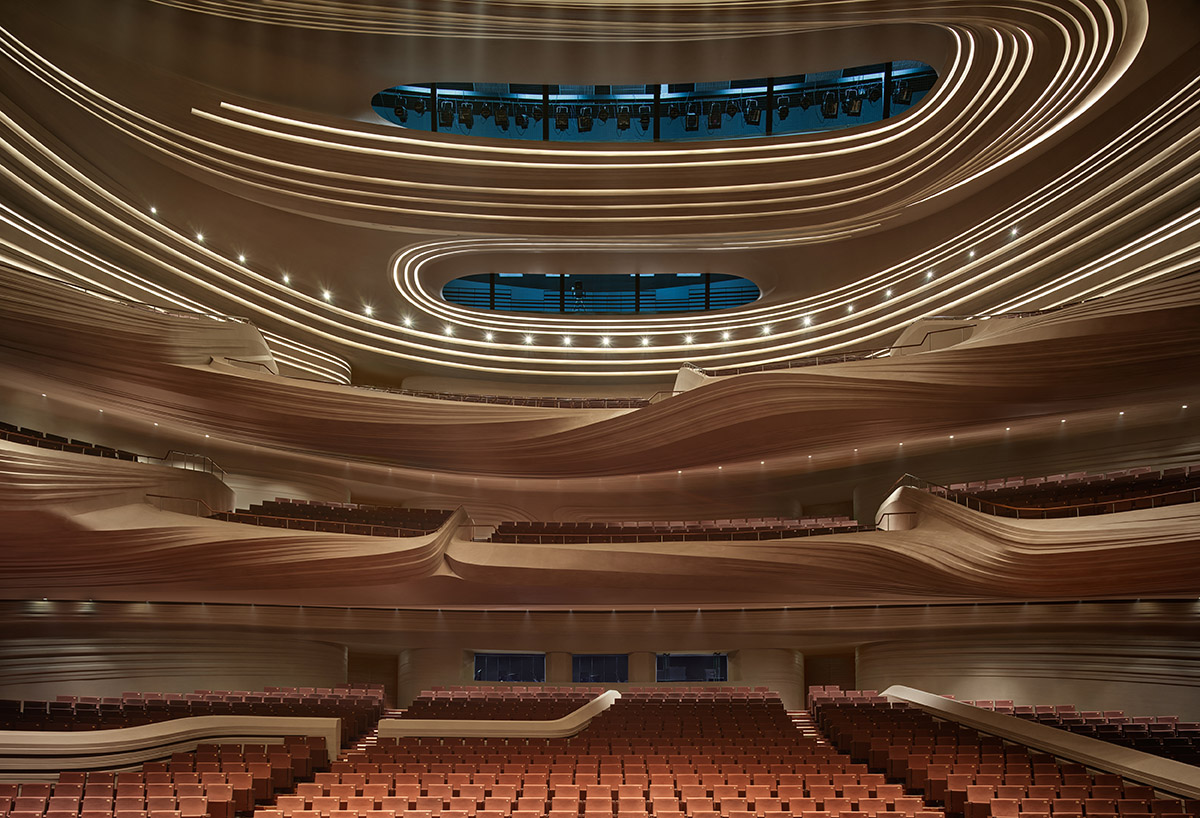
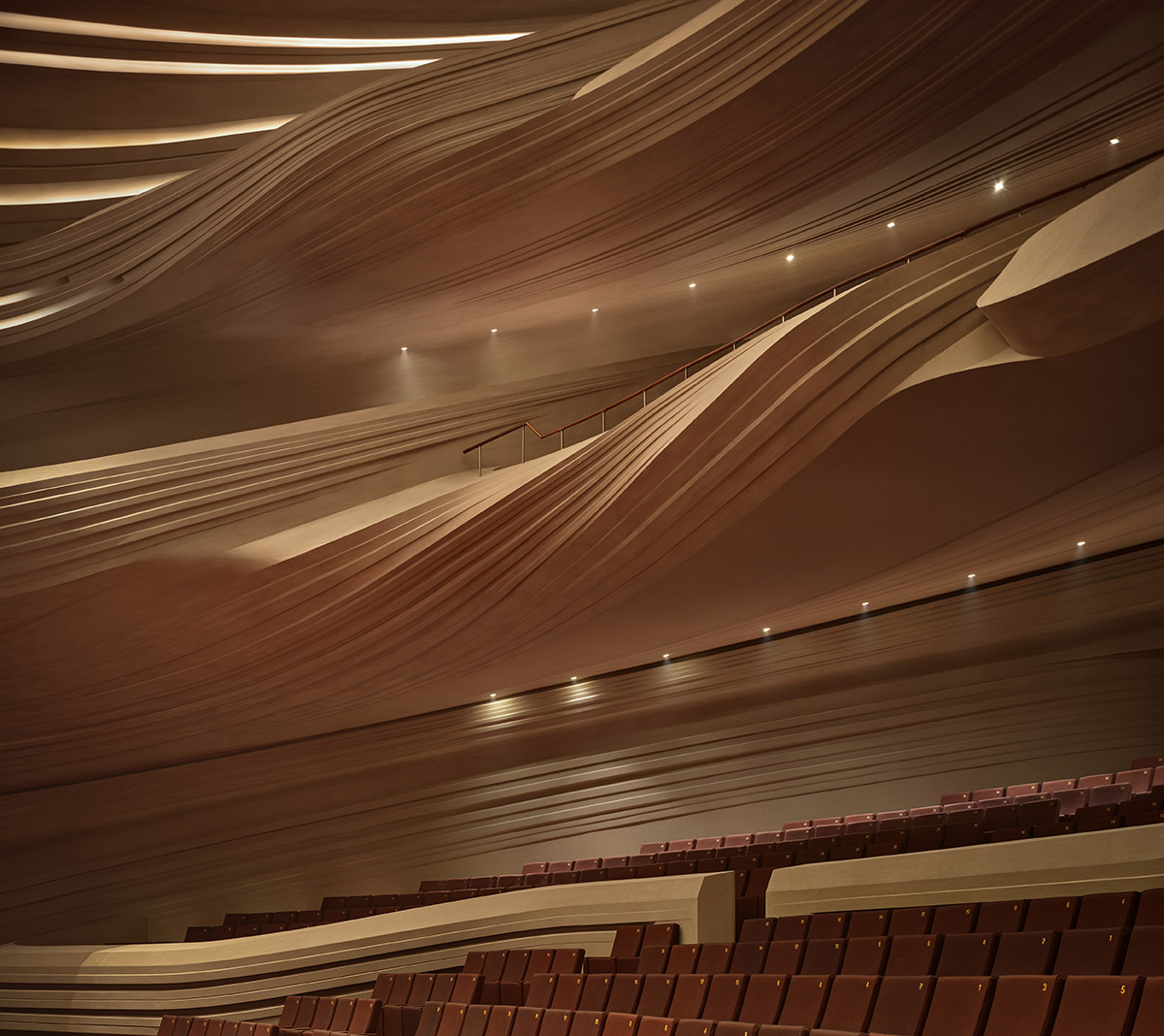
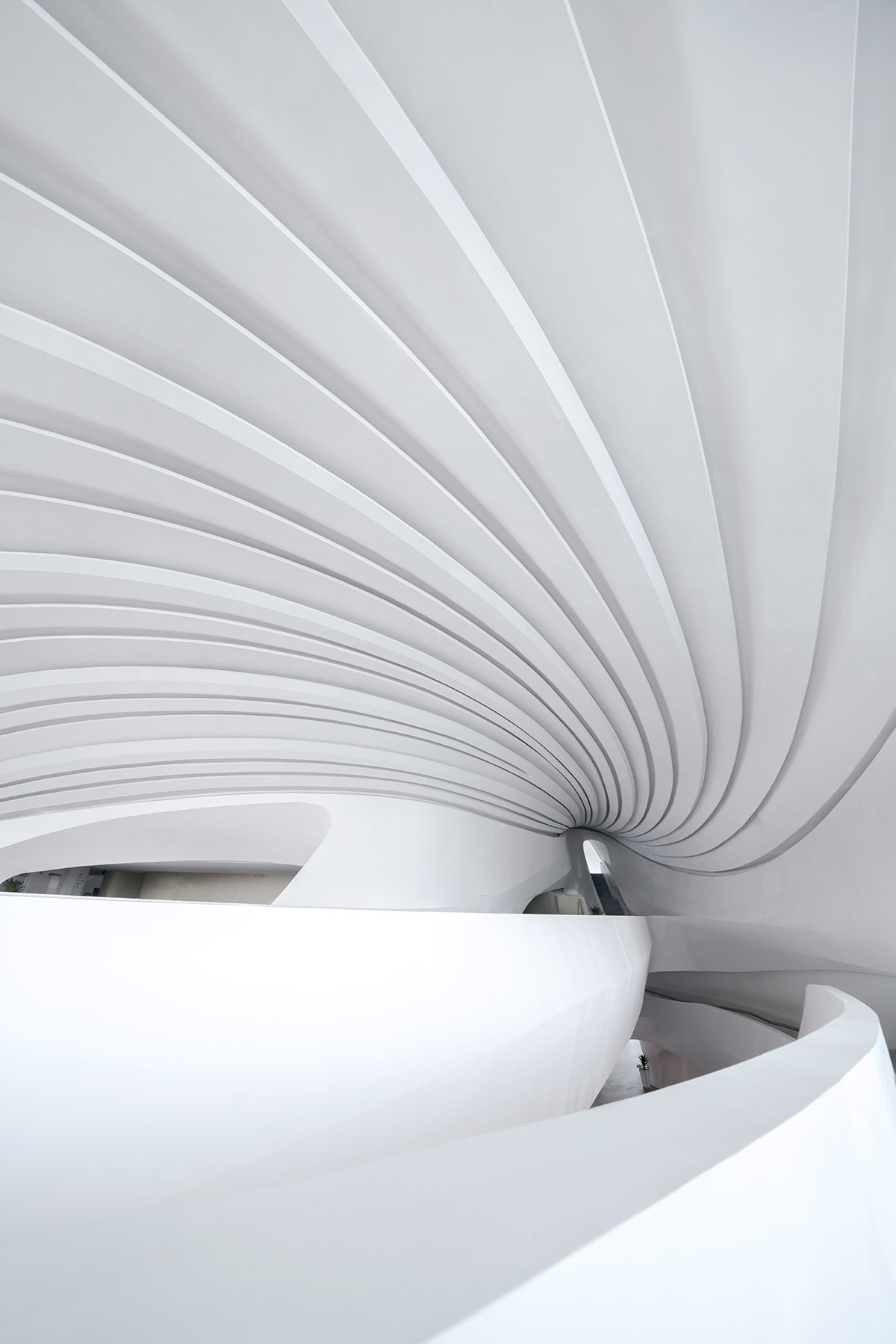
Image © IG: seven7panda
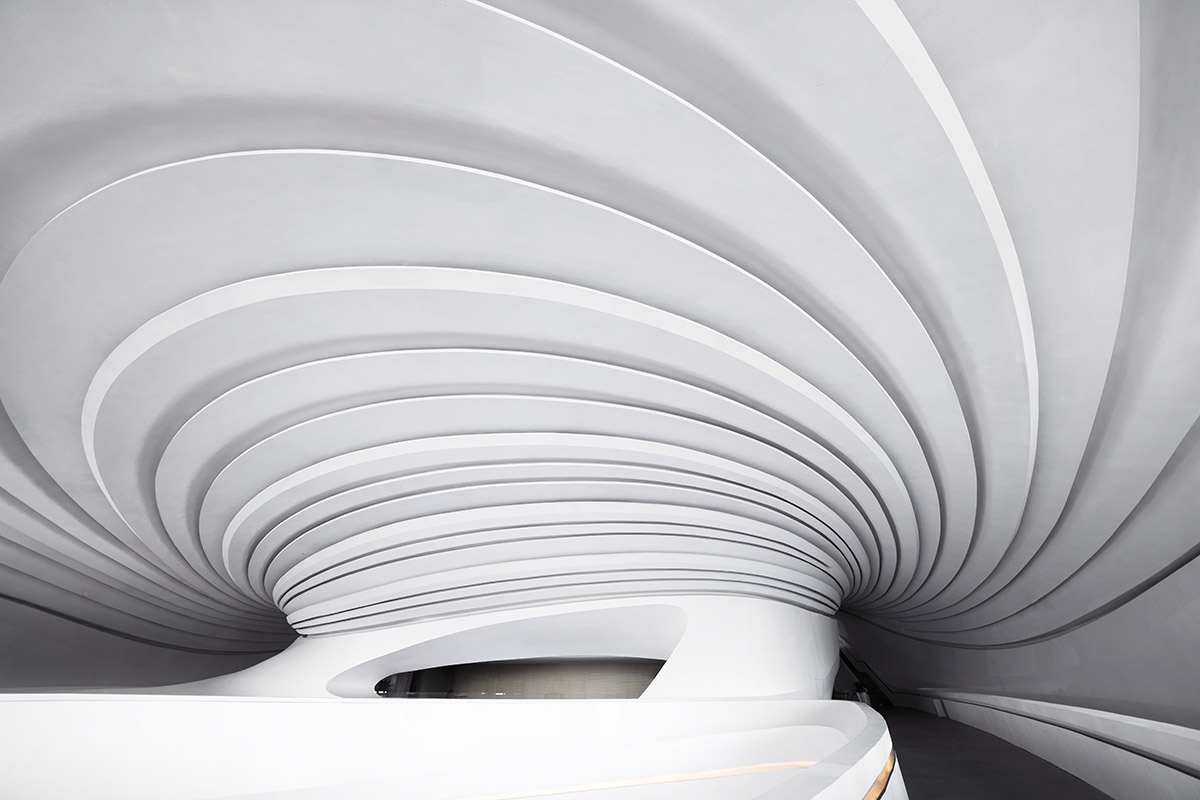
Image © IG: seven7panda
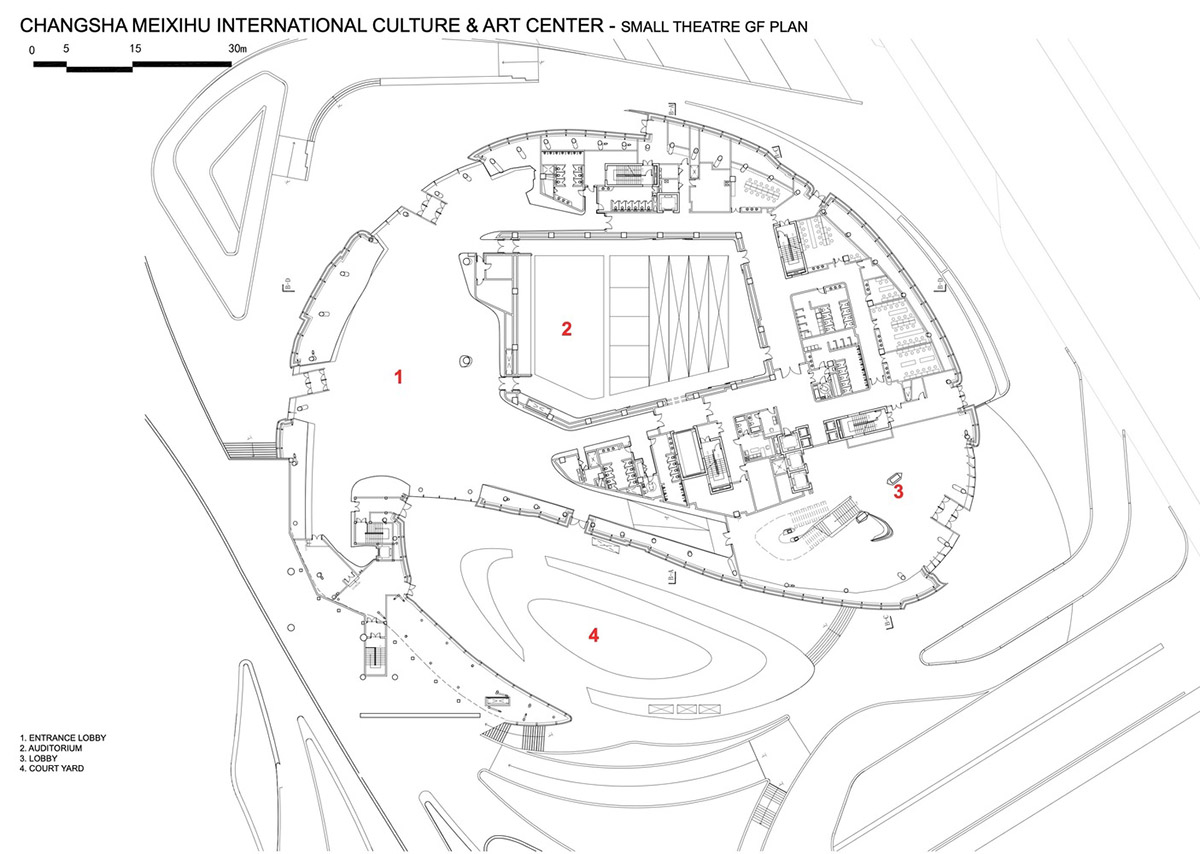
Small theater ground floor plan
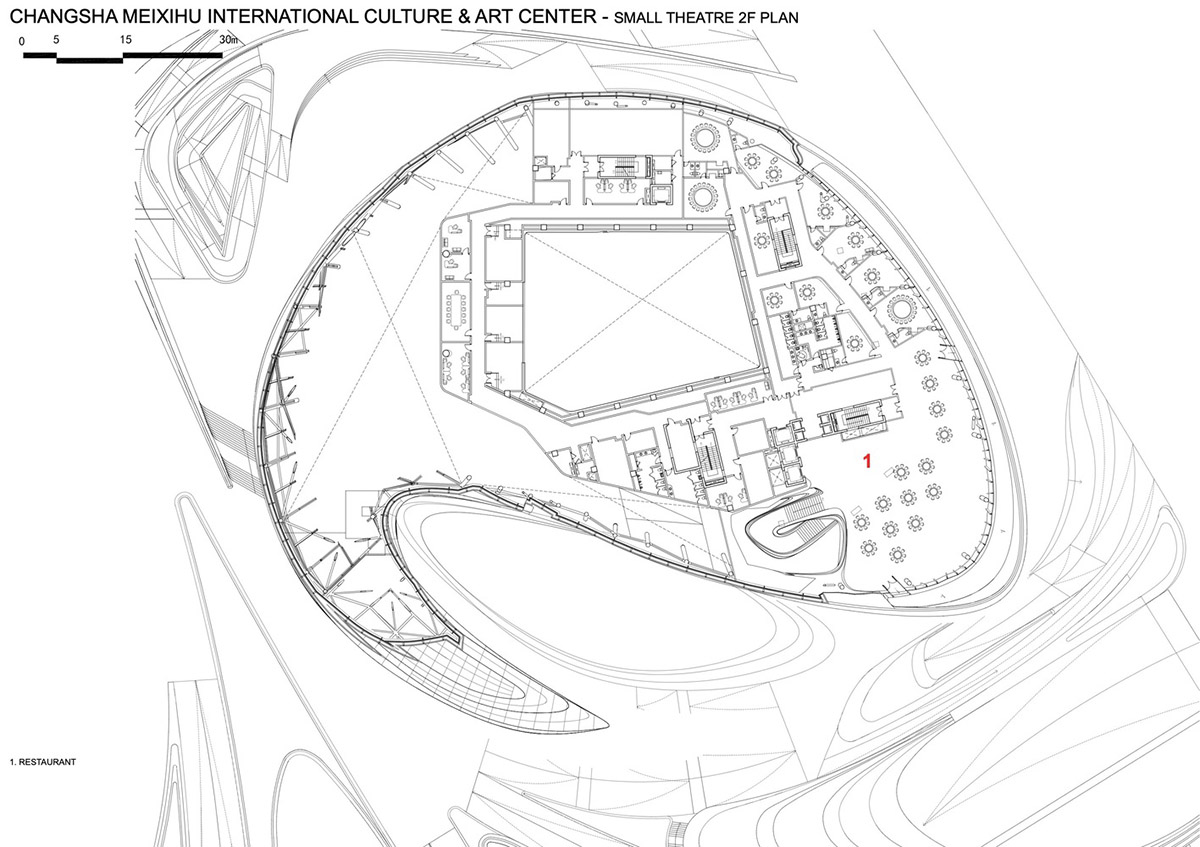
Small theater 2nd floor plan

Small theater 5th floor plan
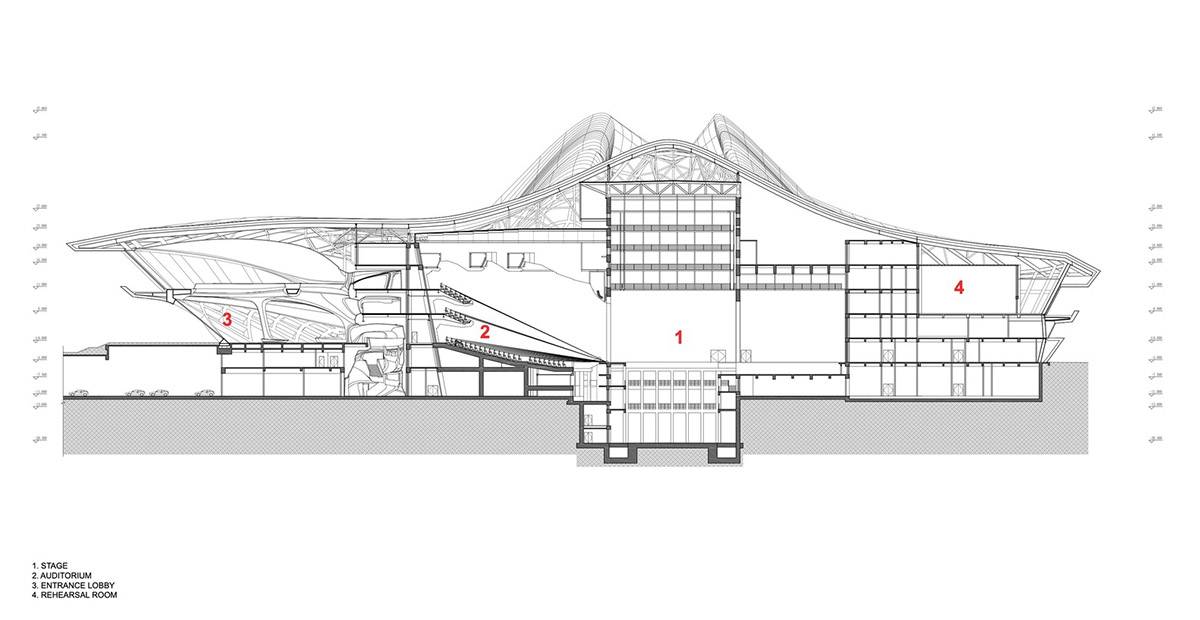
Small theater section
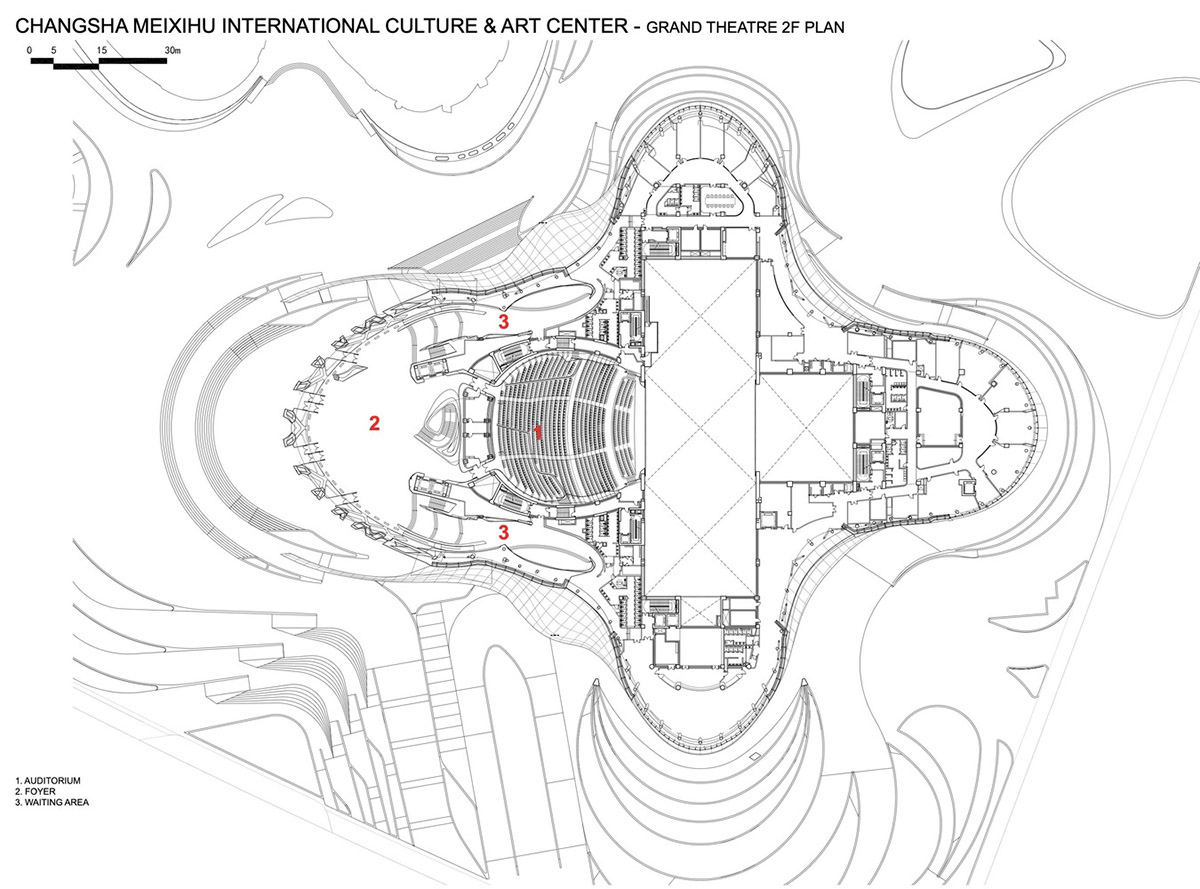
Grand theater 2nd floor plan
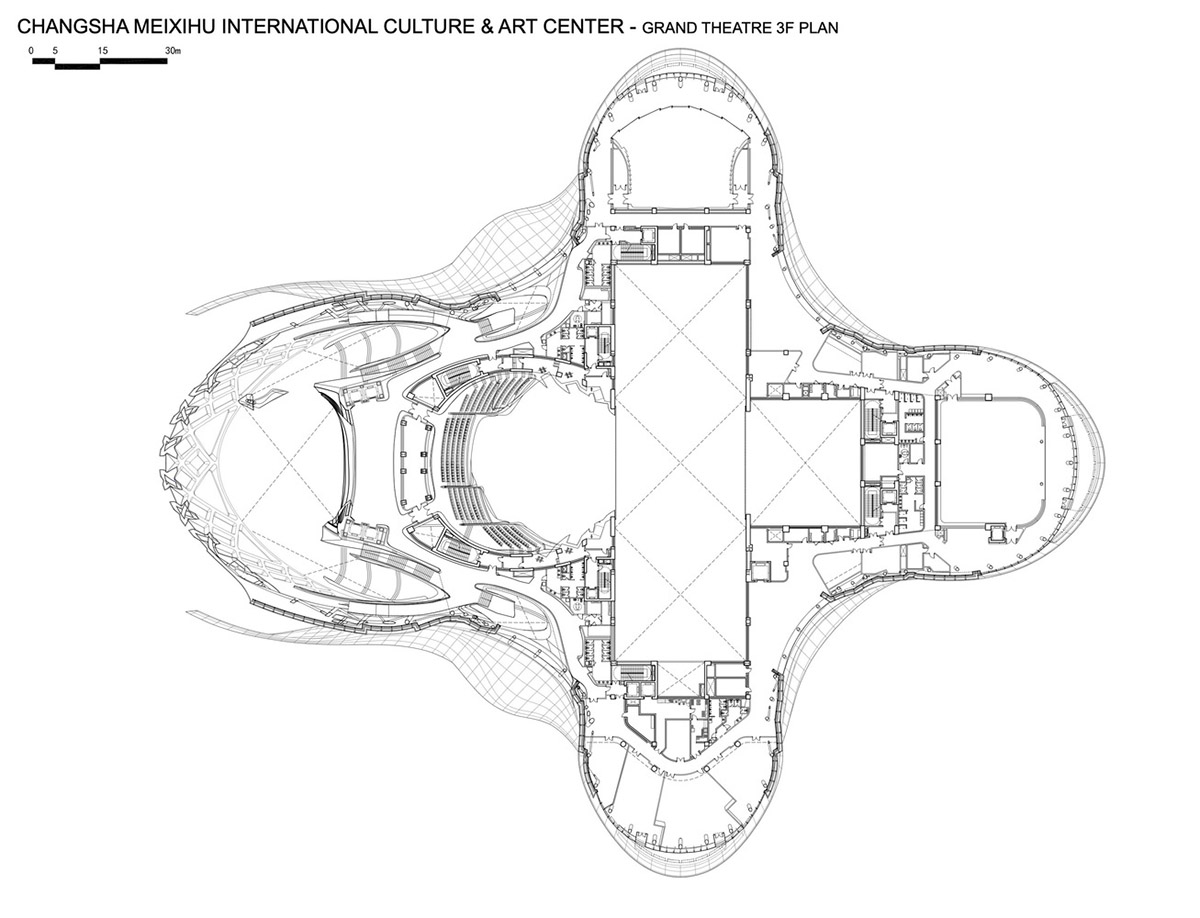
Grand theater 3rd floor plan
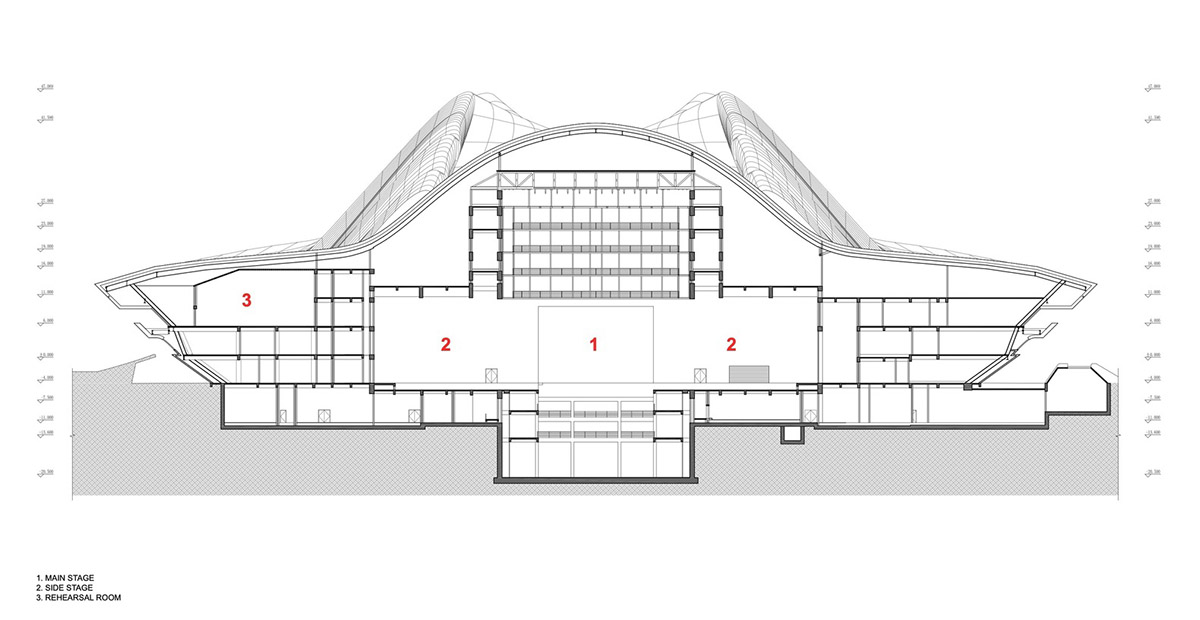
Grand theater section
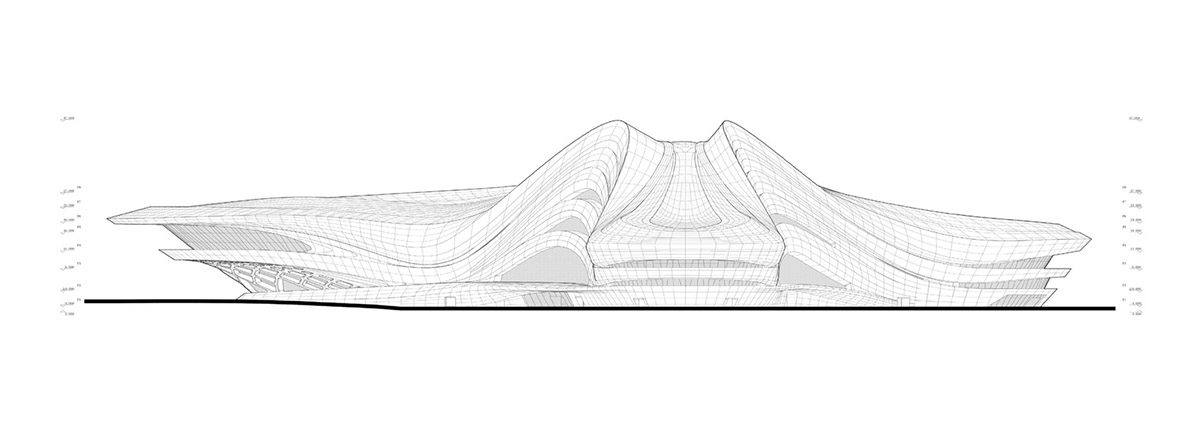
Grand theater elevation
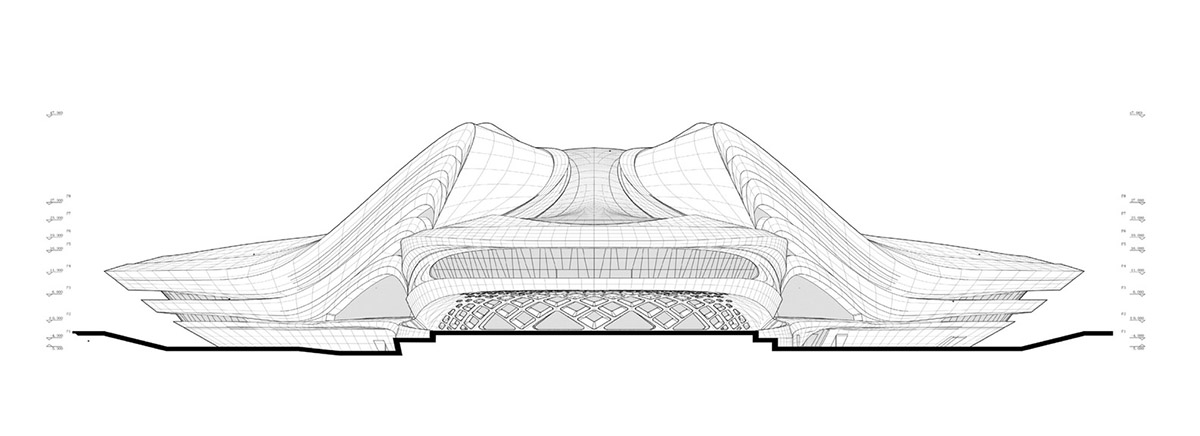
Grand theater elevation
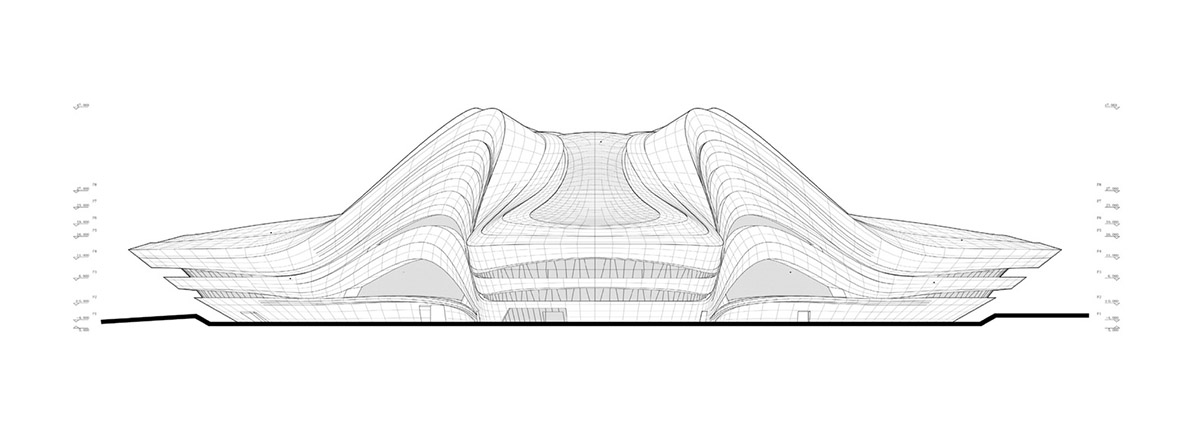
Grand theater elevation
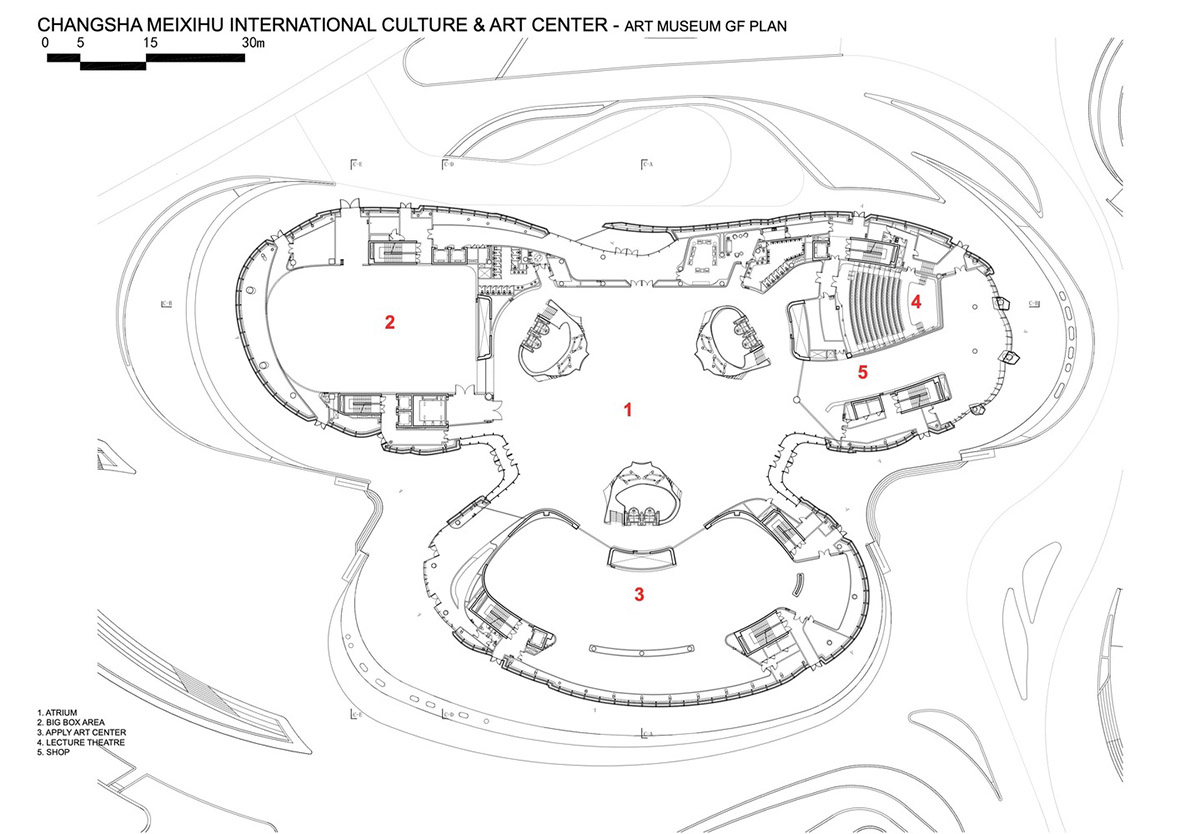
Art museum ground floor plan

Art museum 2nd floor plan
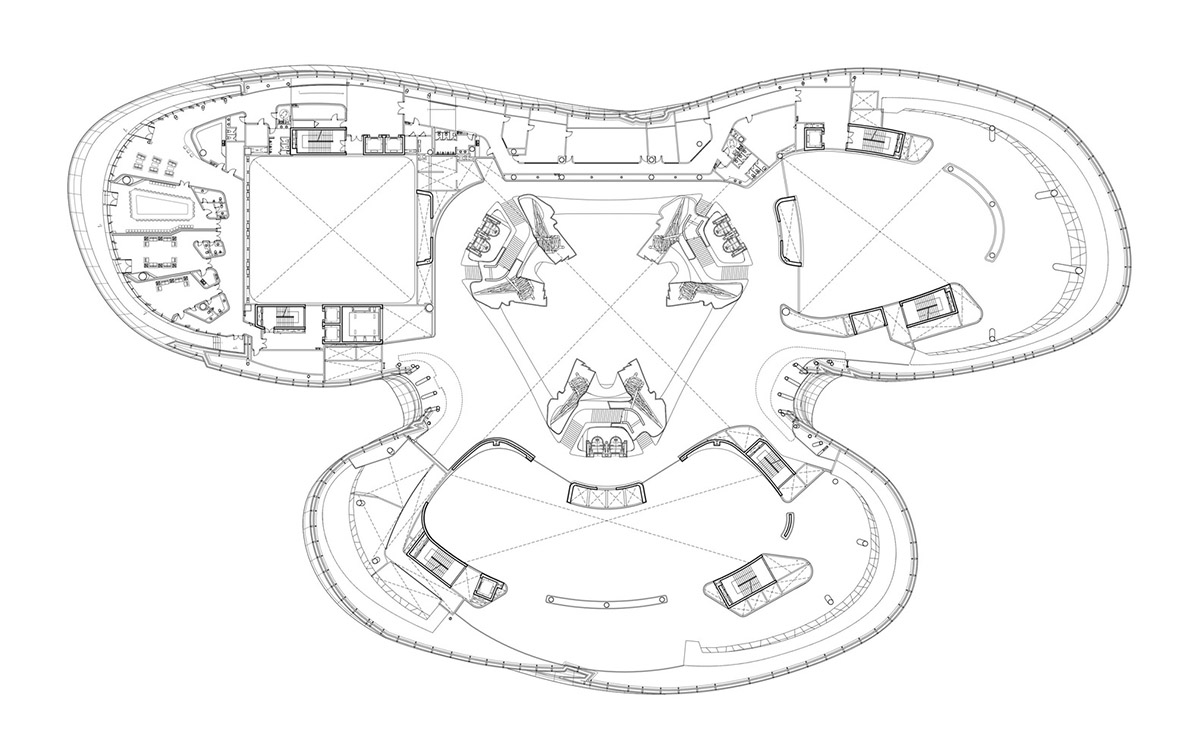
Art museum 2nd mezzanine floor plan
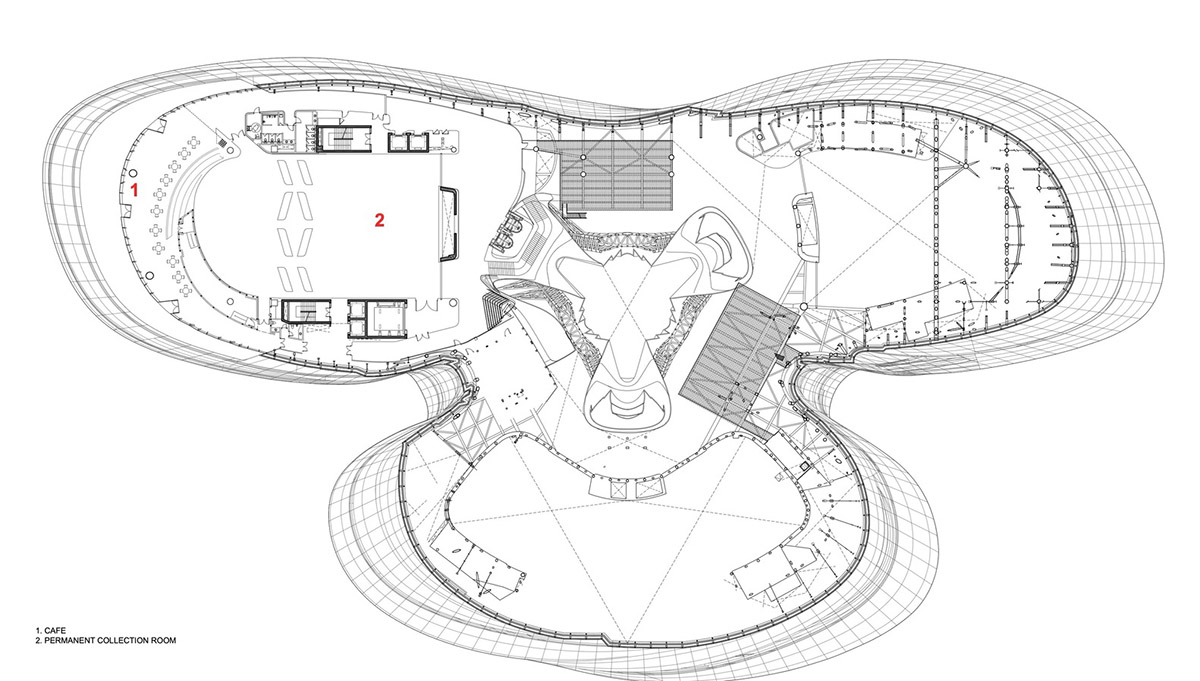
Art museum 4th floor plan
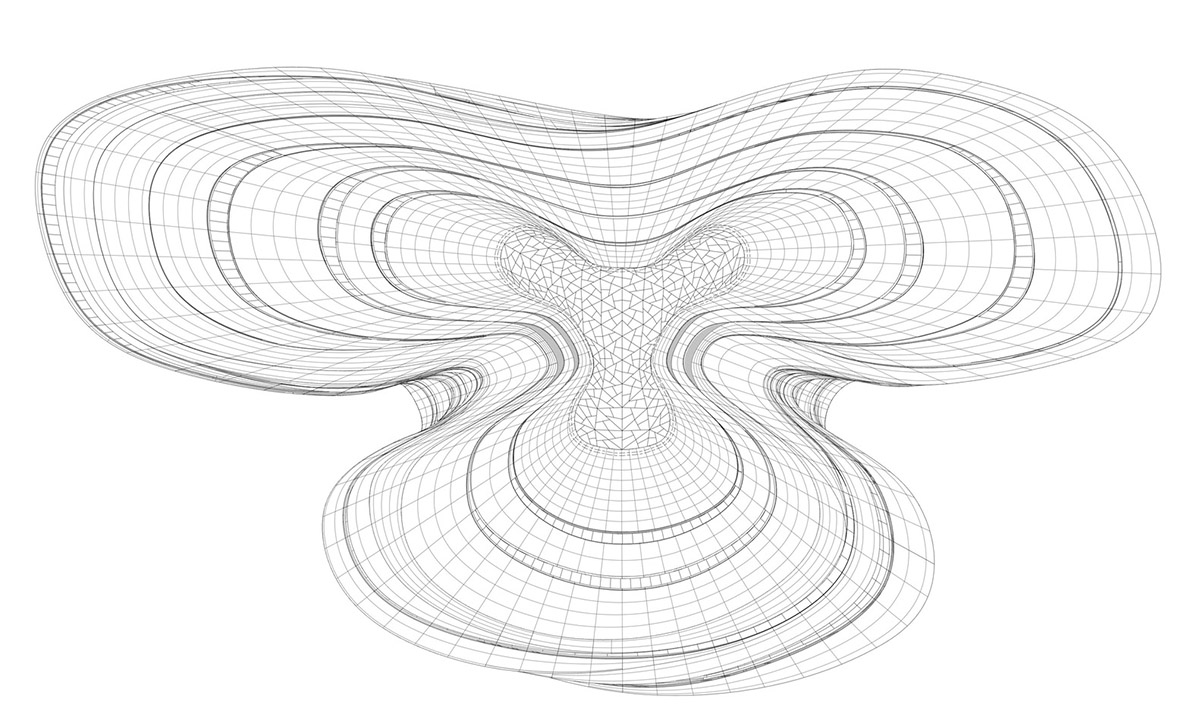
Art museum roof plan
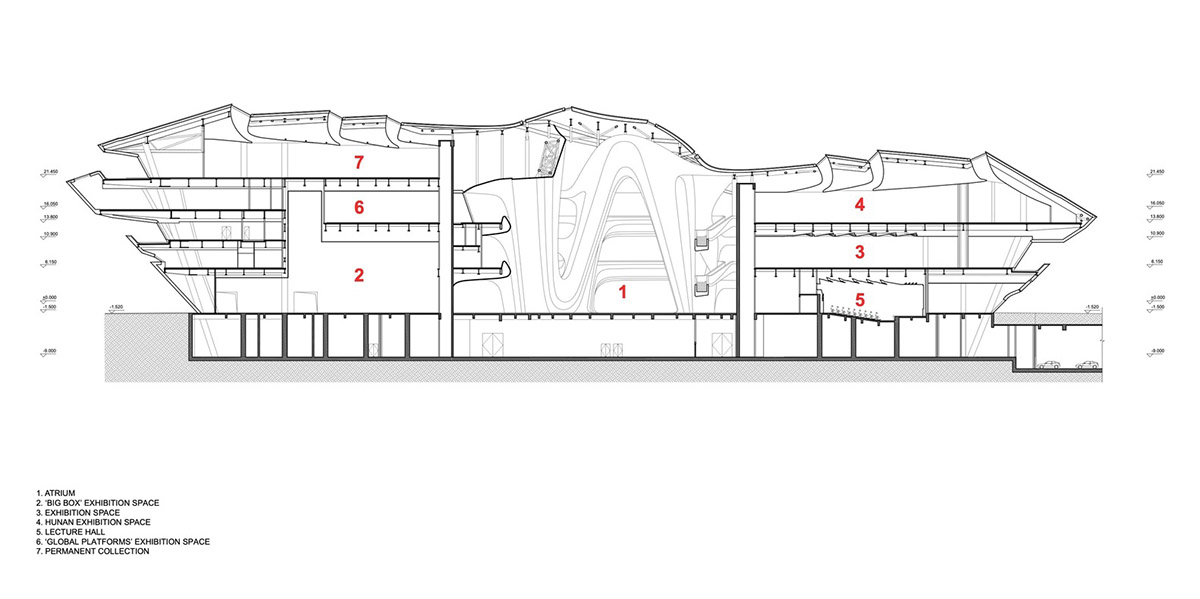
Art museum section-1
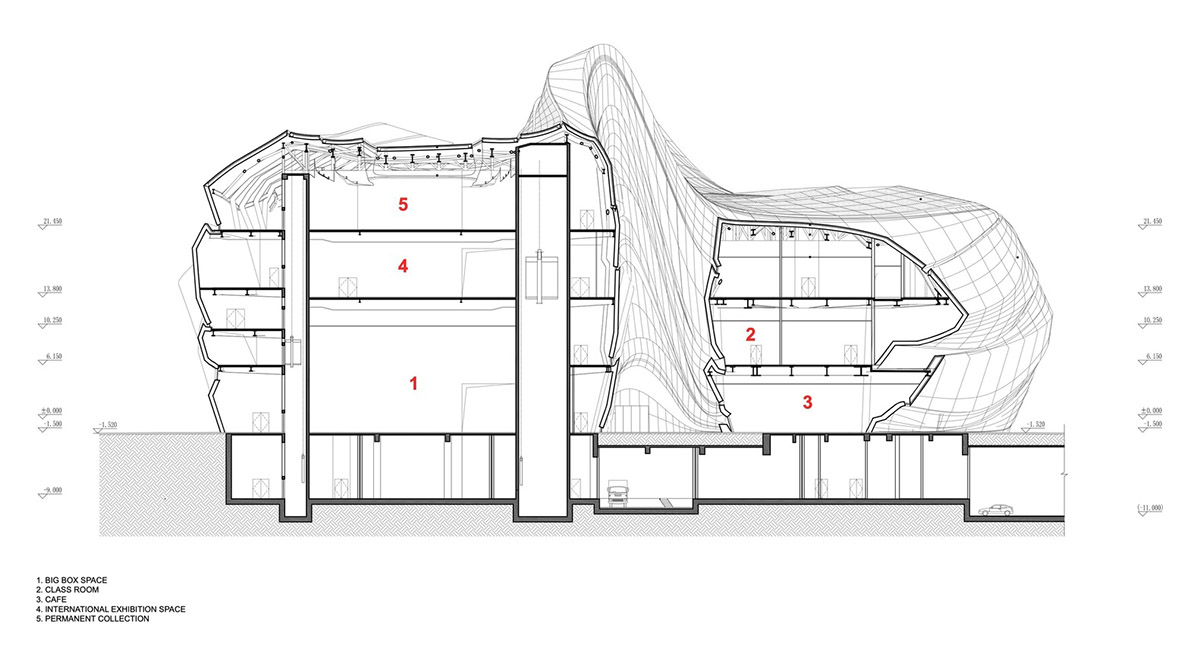
Art museum section-2

Art museum elevation
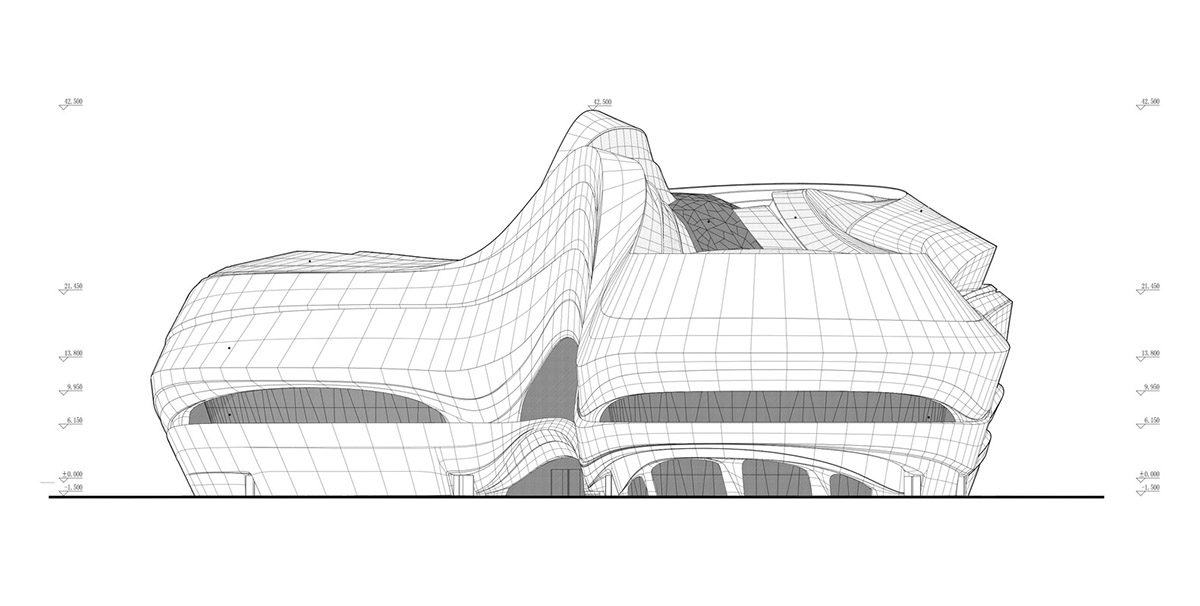
Art museum elevation
Project facts
Architect: Zaha Hadid Architects (ZHA)
Design: Zaha Hadid, Patrik Schumacher
ZHA Project Director: Woody Yao, Simon Yu
ZHA Project Leader: Simon Yu
ZHA Project Team: Zhenjiang Guo, Charles Kwan, Jinqi Huang, Neil Sansom, Pravin Ghosh, Thomas Jensen, Justin Kelly, Wandy Mulia, Uli Schifferdecker, Adrian Aguirre Herrera, Aurora Santana, Koren Sin, Johanna Huang, Yifan Zhang, Collin Spelts, Fei Liang, Adam Fingrut, Yitzhak Samun
ZHA Schematic Design: Zhenjiang Guo, Charles Kwan, Jinqi Huang
ZHA Museum Design: Tariq Khayyat, Kutbuddin Nadiadi, Diego Rossel, Gerry Cruz, Matteo Melioli, Xiaosheng Li, Yuxi Fu, Thomas Jensen, Matthew Johnson, Justin Kelly, Drew Merkle
ZHA Competition Team
ZHA Project Architect: Tiago Correia
ZHA Project Team: Victor Orive, Fabiano Continanza. Zhenjiang Guo, Danilo Arsic, Ines Fontoura, Rafael González, Alejandro Díaz, Jimena Araiza
ZHA Concept Development: Hannes Schafelner, Philipp Ostermaier, Jakub Klaska, Maren Klasing, Saman Saffarian, Martin Krcha, Maria Tsironi, Spyridon Kaprinis
Competition Consultants
Structural, Facade & Building Services Engineering: BuroHappold Engineering
Theatre Consultants: Theatre Projects Consultants
Acoustics Consultants: Marshall Day Acoustics
Consultants
Local Design Institute: Guangzhou Pearl River Foreign Investment Architectural Designing Institute (Guangzhou, China)
Structural Engineers & Building Services: Guangzhou Pearl River Foreign Investment Architectural Designing Institute (Guangzhou, China)
Specialist Acoustics Consultants to the Architect: Marshall Day Acoustics (Hong Kong & Melbourne)
Project Acoustical Consultants: Zhang Kuisheng Acoustical Design Research Studio (Shanghai, China)
Theatre Management Consultants: Poly Theatre Engineering Consultancy (Beijing) Co. Ltd.
Theatre Equipment Consultants: Kunkel Theatre Engineering & Consulting (Beijing) Co., Ltd.
Museum Management Consultants: Global Cultural Asset Management (New York)
Transport Consultants: Sinclair Knight Merz (Shanghai, China)
Project Management: Shanghai Gao Shen Consultants Ltd. (Shanghai, China)
All images © Virgile Simon Bertrand unless otherwise stated.
All drawings © ZHA
> via ZHA
